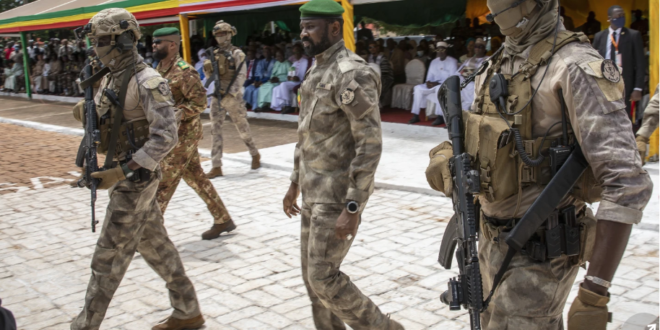Muhamad Yehia
BAMAKO, Mali (AP) — Authorities in Mali’s capital announced Thursday after a deadly attack by al-Qaida-linked militants that they were closing several livestock markets that typically are run by an ethnic group that officials associate with the militants.
The al-Qaida-linked militant group JNIM claimed responsibility for the attacks Tuesday on a military training camp and the airport on the outskirts of Bamako. Malian officials said government forces suffered losses in the attack, but have released no official death toll.
Most livestock markets in Mali’s capital are run by Fulani people — also known as the Peuhl — who are believed to be the largest semi-nomadic ethnic group in the world, with communities stretching from Senegal to the Central African Republic. Fulanis also are disproportionately represented in Islamic militant groups in central Mali, which has led to them being stigmatized by other ethnic groups
Seven major livestock markets in the capital will be closed for “reasons of public order,” Abdoulaye Coulibaly, the governor of the district of Bamako, said in a statement late Thursday. The statement did not clarify how long the closures would last.
Rida Lyammouri, a senior fellow at the Policy Center for the New South, a think tank in Morocco, told The Associated Press that Mali’s government perceives Fulanis as generally working with jihadis and believes that the JNIM has infiltrated the capital with their help
Lyammouri said that “continues to feed into the narrative that all Fulanis support jihadist groups, which is not true,” Lyammouri said. “Jihadist groups do not discriminate on who could join, members of the group include Bambara, Dogon, Arabs, Songhai, and Tuareg, not only Fulanis.”
Mali, along with its neighbors Burkina Faso and Niger, has for more than a decade battled an insurgency fought by armed groups, including some allied with al-Qaida and the Islamic State group
Following military coups in all three nations in recent years, the ruling juntas have expelled French forces and turned to Russian mercenary units for security assistance instead
Since taking power, Col. Assimi Goita has struggled to stave off jihadi attacks. Attacks in central and northern Mali are increasing. In July, approximately 50 Russian mercenaries in a convoy were killed in an al-Qaida ambush.
Attacks in the capital of Bamako are rare, however.
 موقع وجه أفريقيا موقع وجه أفريقيا هو موقع مهتم بمتابعة التطورات في القارة الأفريقية
موقع وجه أفريقيا موقع وجه أفريقيا هو موقع مهتم بمتابعة التطورات في القارة الأفريقية



